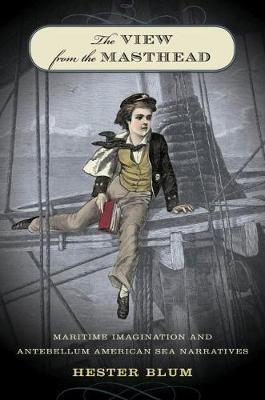Overview
With long, solitary periods at sea, far from literary and cultural centers, sailors comprise a remarkable population of readers and writers. Although their contributions have been little recognized in literary history, seamen were important figures in the nineteenth-century American literary sphere. In the first book to explore their unique contribution to literary culture, Hester Blum examines the first-person narratives of working sailors, from little-known sea tales to more famous works by Herman Melville, James Fenimore Cooper, Edgar Allan Poe, and Richard Henry Dana.In their narratives, sailors wrote about how their working lives coexisted with - indeed, mutually drove - their imaginative lives. Even at leisure, they were always on the job site. Blum analyzes seamen's libraries, Barbary captivity narratives, naval memoirs, writings about the Galapagos Islands, Melville's sea vision, and the crisis of death and burial at sea. She argues that the extent of sailors' literacy and the range of their reading were unusual for a laboring class, belying the popular image of Jack Tar as merely a swaggering, profane, or marginal figure. As Blum demonstrates, seamen's narratives propose a method for aligning labor and contemplation that has broader applications for the study of American literature and history.
Full Product Details
Author: Hester Blum
Publisher: The University of North Carolina Press
Imprint: The University of North Carolina Press
Edition: New edition
Dimensions:
Width: 15.90cm
, Height: 1.70cm
, Length: 23.30cm
Weight: 0.435kg
ISBN: 9780807858554
ISBN 10: 0807858552
Pages: 288
Publication Date: 25 February 2008
Audience:
College/higher education
,
Undergraduate
Format: Paperback
Publisher's Status: Active
Availability: In Print

This item will be ordered in for you from one of our suppliers. Upon receipt, we will promptly dispatch it out to you. For in store availability, please contact us.
Reviews
A much-needed literary and cultural critic's perspective. <br> -- American Historical Review <br>
[An] intelligently argued book.-- International Journal of Maritime History
A much-needed literary and cultural critic's perspective. <br> -- American Historical Review <br><br>
Thanks to this fascinating and informative study, it is as difficult to conceive of maritime literature without sailor narratives as it is to remember that the contributions of sailors to literary culture have until this moment gone unrecognized in literary history. -- Common-Place
Thanks to this fascinating and informative study, it is as difficult to conceive of maritime literature without sailor narratives as it is to remember that the contributions of sailors to literary culture have until this moment gone unrecognized in liter A much-needed literary and cultural critic's perspective.--American Historical Review [An] intelligently argued book.--International Journal of Maritime History Essential reading for those interested in the sea and in narrative theory.--The Journal of American History Thanks to this fascinating and informative study, it is as difficult to conceive of maritime literature without sailor narratives as it is to remember that the contributions of sailors to literary culture have until this moment gone unrecognized in literary history.--Common-Place A dense, highly intellectual study of American sea writing in the first half of the nineteenth century. . . . Provocative and thoughtful.--Maryland Historical Magazine A rich meditation on the literary culture of early national and antebellum sailors and the cultural work their narratives performed.--New England Quarterly [An] intelligently argued book.-- International Journal of Maritime History A much-needed literary and cultural critic's perspective. -- American Historical Review A rich meditation on the literary culture of early national and antebellum sailors and the cultural work their narratives performed. -- New England Quarterly Essential reading for those interested in the sea and in narrative theory. -- The Journal of American History [An] intelligently argued book. -- International Journal of Maritime History A dense, highly intellectual study of American sea writing in the first half of the nineteenth century. . . . Provocative and thoughtful. -- Maryland Historical Magazine This is an impressive, substantial, well-written book that engages a wide range of criticism and makes an important contribution to many fields in American studies.—Shelley S. Streeby, University of California, San Diego
A much-needed literary and cultural critic's perspective.--American Historical Review <p/>
Author Information
Hester Blum is assistant professor of English at Pennsylvania State University.




